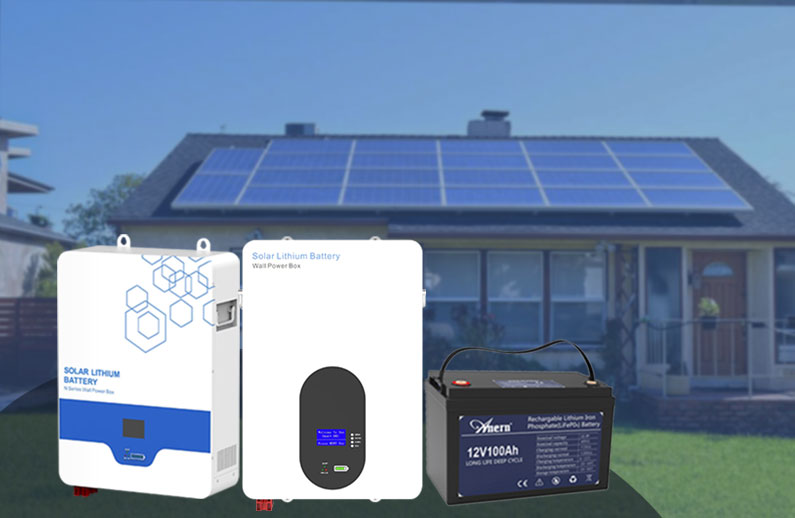What is the Difference Between Li-ion and LiFePO4 Lithium Solar Batteries?
Apr 19, 2024
In the realm of solar energy storage, the choice of battery technology can significantly impact the performance, safety, and longevity of a solar power system. Among the options available, two prominent choices are lithium-ion (Li-ion) batteries and lithium iron phosphate (LiFePO4) batteries specifically designed for solar applications. In this blog post, we will delve into the disparities between Li-ion and LiFePO4 lithium solar batteries, highlighting their respective features, benefits, and applications.
Li-ion Lithium Solar Batteries:
Li-ion batteries are ubiquitous in various energy storage applications, including solar power systems. These batteries typically employ a cathode material such as lithium cobalt oxide (LiCoO2) and an anode material like graphite. Li-ion batteries are favored for their high energy density, which allows them to store large amounts of energy in a compact and lightweight form. This characteristic makes Li-ion batteries suitable for applications where space efficiency is crucial.
LiFePO4 Lithium Solar Batteries:
LiFePO4 batteries represent a specialized category of lithium batteries tailored specifically for solar energy storage. These batteries utilize lithium iron phosphate as the cathode material, offering distinct advantages over traditional Li-ion batteries. One of the primary benefits of LiFePO4 batteries is their superior safety and stability. Unlike certain Li-ion chemistries, LiFePO4 batteries demonstrate enhanced resilience against thermal runaway and overheating, making them particularly suitable for solar applications where safety is paramount.
Key Differences and Advantages:
Safety: LiFePO4 lithium solar batteries are renowned for their robust safety profile, exhibiting greater resistance to thermal issues compared to Li-ion batteries. This feature ensures enhanced reliability and peace of mind, especially in residential and commercial solar installations.
Cycle Life: LiFePO4 batteries typically offer an extended cycle life compared to standard Li-ion batteries, meaning they can endure a higher number of charge-discharge cycles over their operational lifespan. This characteristic translates to enhanced durability and cost-effectiveness for long-term solar energy storage solutions.
Temperature Performance: LiFePO4 lithium solar batteries exhibits superior performance across a wide range of temperatures, both high and low, compared to Li-ion batteries. This versatility makes them well-suited for solar installations in diverse climatic conditions.
Voltage Stability: LiFePO4 batteries maintain a more stable voltage throughout the discharge cycle compared to Li-ion batteries, resulting in a flatter discharge curve. This attribute contributes to more consistent power output and improved efficiency in solar energy storage applications.
Applications and Examples:
CATL LiFePO4 Lithium Solar Battery: Contemporary Amperex Technology Co., Limited (CATL) is a leading manufacturer of lithium batteries, offering a range of LiFePO4 solutions tailored for solar energy storage. CATL's LiFePO4 lithium solar batteries are esteemed for their reliability, safety, and longevity.
Rack LiFePO4 Lithium Battery: Rack manufacturers LiFePO4 lithium batteries designed specifically for solar power systems. These batteries are engineered to deliver dependable performance and resilience in demanding solar applications.
While both Li-ion and LiFePO4 lithium batteries are viable options for solar energy storage, LiFePO4 batteries offer distinct advantages in terms of safety, cycle life, temperature performance, and voltage stability. These attributes position LiFePO4 lithium solar batteries as an optimal choice for residential, commercial, and industrial solar installations, facilitating sustainable and efficient energy storage solutions for a greener future.


 Network Supported
Network Supported